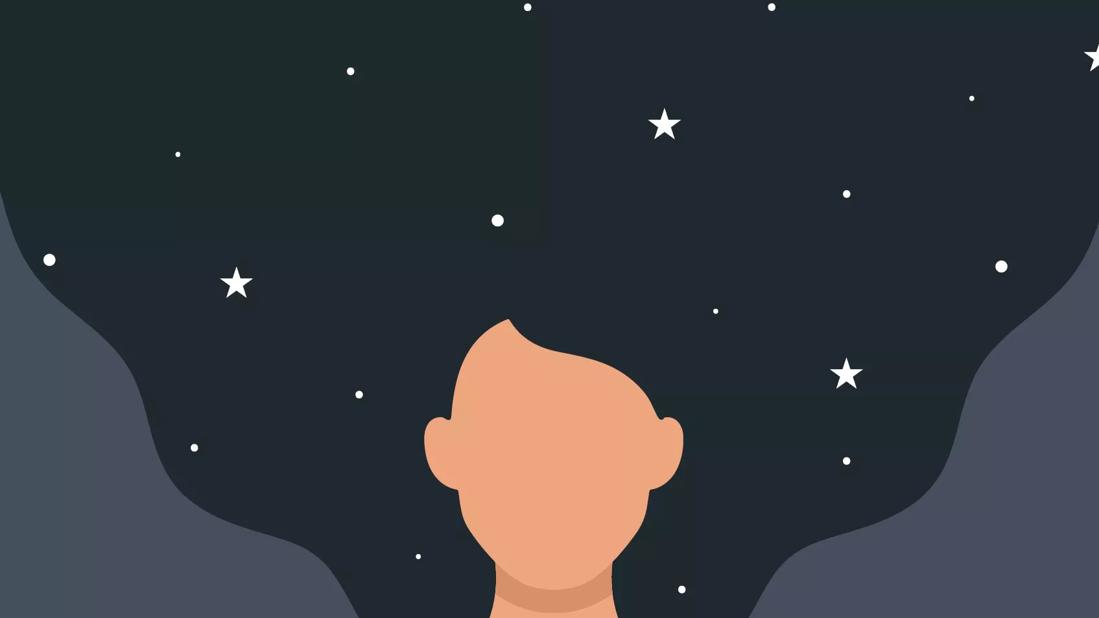Experts are still trying to unravel this mystery

Image content: This image is available to view online.
View image online (https://assets.clevelandclinic.org/transform/ff4981dc-dc7f-44f9-8b28-4ca6b5b40890/Why-Do-We-Dream-1333685958-770x533-1_jpg)
Person in sleep state dreaming.
Who needs to stream the latest Hollywood flicks? When you sleep at night, your brain splices both strange and familiar scenarios together to create the weirdest midnight movies ever. In other words: dreams.
Advertisement
Cleveland Clinic is a non-profit academic medical center. Advertising on our site helps support our mission. We do not endorse non-Cleveland Clinic products or services. Policy
But why do we have dreams — and what do they all mean? Experts don’t have a lot of concrete answers, but behavioral sleep medicine expert Michelle Drerup, PsyD, DBSM, explains what we do know about what’s going on when you dream.
Why do people dream? It’s a question for the ages.
There’s a lot that experts don’t know about why people dream and where dreams come from.
However, the prevailing theory is that dreaming helps you consolidate and analyze memories (like skills and habits) and likely serves as a “rehearsal” for various situations and challenges that one faces during the daytime.
We also know much — but not all — of what’s going on physiologically during dreams. Most dreaming occurs during REM (rapid eye movement) sleep, which we cycle through periodically during the night. Sleep studies show our brainwaves are almost as active during REM cycles as they are when we’re awake.
Experts believe the brainstem generates REM sleep and the forebrain generates dreams. In fact, if the brainstem is injured, patients dream but don’t go into REM sleep. And if the forebrain is injured, patients go into REM sleep but don’t dream.
At the same time, we have far more to learn about what’s going on psychologically when we dream. For example, one study suggests that dreams stem more from your imagination (the memories, abstract thoughts and wishes pumped up from deep within your brain) than from perception (the vivid sensory experiences you collect in your forebrain).
And experts have found that dreaming can accompany psychiatric conditions. We do know that people living with post-traumatic stress syndrome (PTSD) are more likely to have nightmares. These are manifestations of tension for people living with PTSD because they recur around their traumatic experiences.
Advertisement
Of course, people without PTSD also have nightmares, so more research is needed as to the source of these often-upsetting dreams.
This may have to do with neurotransmitters, or brain chemicals. During REM sleep, some are more pronounced while others are suppressed.
Acetylcholine (which maintains brain activation) is more prominent, as is dopamine (which some researchers link to hallucinations). Dopamine may help give dreams their surreal quality.
Meanwhile, REM sleep suppresses the neurotransmitters that usually keep us awake: histamine, serotonin and norepinephrine. Thus, we’re less conscious of our environment.
Some researchers suspect the thalamus (the gateway for sensory input) closes when we dream.
We can’t answer this easily because we haven’t found a good way to study dreams in people. Memories of dreams fade quickly after you wake up, and it’s difficult to correlate brain scans with your reports of dreams.
The relationship between space and time also changes when you dream. Time may seem to last forever — or pass by very quickly.
Most people do dream every night. However, you simply don’t remember your dreams unless you’re awakened during or just after them.
That can be frustrating, although Dr. Drerup says it can help to write down what the dream was as soon as you wake up.
Figuring out what a dream means is yet another mystery, however. In the 1950s, Dr. Sigmund Freud introduced dream interpretation, but we’ve never been able to substantiate his claims. In fact, Dr. Drerup notes that dream interpretation is completely subjective.
So, ditch the books that promise to tell you what your snoozing visions mean, and look to your own waking life instead.
Advertisement

Sign up for our Health Essentials emails for expert guidance on nutrition, fitness, sleep, skin care and more.
Learn more about our editorial process.
Advertisement
Sleep masks can help you create total darkness so you can sleep better
To avoid sleep deprivation and shift work sleep disorder, try adopting habits that minimize light exposure and prioritize daytime sleep
Sleep disorders, mental health conditions and other health concerns can all affect the quality of your sleep
Most people fall asleep within 10 to 20 minutes, but if your experience is different, adjusting your sleep schedule may help
Stick to a consistent schedule, be mindful of screen time and work on reducing your stress levels before bed
Napping can boost focus, memory and mood — if you time it right
These devices can help shed light on what’s happening with your body during rest
Keep a dream journal, set your intentions before bed and make sure you’re getting a full night of high-quality sleep
Although it could be used as a moisturizer, this new trend is not recommended
Communicating clear limits helps protect your time, energy and emotional well-being
High cholesterol can be genetic, but testing and treatment can lower your heart disease risk